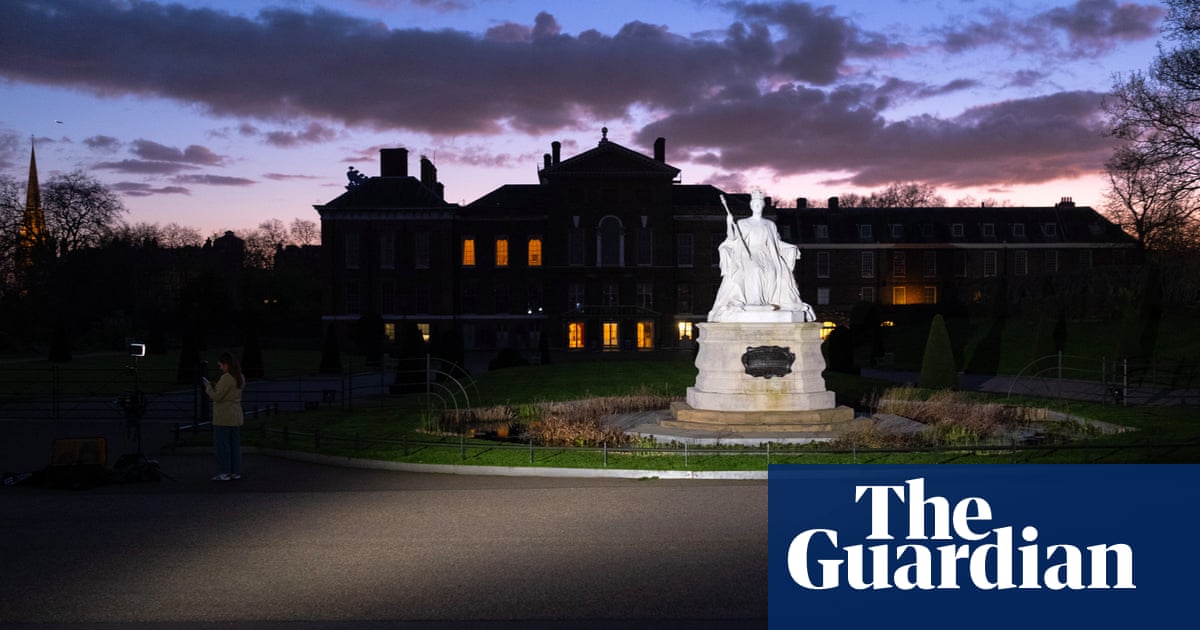
In many professions, working a 14-hour day with no break would be unthinkable, but for many nurses on freezing picket lines across the country on Thursday it is increasingly becoming the norm.
“It’s tough at the moment,” said Ella Savage, a children’s specialist nurse at Leeds general infirmary, where about 200 nurses were gathered at one of 125 Royal College of Nursing (RCN) pickets across England, Wales and Northern Ireland.
“We’ve got staff shortages, more junior staff, lots of patients and sicker patients. A busy day is horrible, we can only do extra for so long,” she said.
Her colleague Jenny France, who manages a paediatric ward, agreed. “Every nurse will try to make sure it doesn’t impact the patients but there’s a limit,” she said.
Her ward needs 16 nursing staff but at the moment there are only nine. This means nurses are staying at work unpaid after completing 12-hour shifts, picking up extra shifts and not taking much-needed breaks to eat or use the toilet.
Jane Matthews, 66, a paediatrics staff nurse on the picket line outside the Bristol Royal Hospital for Children, said: “I’m disappointed, frustrated, I find it really sad that it’s come to this.
“We don’t want to be here. We shouldn’t need to do this. There just isn’t enough staff at the hospital.
“As the winter pressures start, we’re already at capacity. If you don’t have enough nurses, you don’t have the beds open which means that you can’t get people out of the emergency department quickly enough, so you have the ambulances backing up. It’s going to get worse and worse this winter.”
These staff shortages are the main issue for many of the striking nurses, with pay a secondary concern. France, who has been in the profession for 15 years, said there have been times when leaving nursing seemed the only route available.
“There are lots of nurses leaving, which is not easy to do. Being a nurse is your identity, you don’t just get another career,” she said.
“Giving up your registration is a big deal. There’s a lot of guilt among people who have left but it’s self-preservation. It hasn’t been an easy decision for them and not taken lightly.”
Compounding the pressures is a lack of foreign nurses, who the NHS had previously relied upon, said Julie Parkinson, a hip fracture specialist who has been a nurse for 37 years.
“We lost a lot of staff during the pandemic and due to Brexit. They decided the time was right for them to go. It’s a massive shame because we needed them,” she said.
Even so, striking for the first time in the RCN’s history was a difficult decision. “The atmosphere this week has been quite sombre. We really didn’t want to do this,” Savage said.
The public support has been heartwarming. In Leeds, almost every passing car, van, bus and ambulance beeped their horn in solidarity.
Members of the public stopped to wish them luck and by mid-morning there was a pile of sweets, biscuits, doughnuts and mince pies donated by passersby – too many for the nurses to get through.
Numb hands and feet were not enough to dampen spirits, and union staff were passing round hot drinks to help ward off the sub-zero temperatures.
“It’s been quite emotional,” said Kevin Terry, a regional RCN representative.
In Bristol, nurses briefly broke the picket line to help a man who collapsed metres outside the royal infirmary’s main entrance. He was put into the recovery position and could be seen shivering on the ground before hospital staff could pick him up, according to the news agency SWNS.
Student nurses made up a small proportion of the strikers, and many of them spoke of their worries about a bleak future on wards which were sometimes being run by nurses only six months out of university.
Some students were already doing 45-hour weeks in their placements on wards as well as their academic work at university. How do they cope with it? “We cry,” said Megan Wood, a third-year Leeds student whose mother is also a nurse. “All the nurses cry.”












